Seth Watari: Road Scholar Instructor on the Love and Craft of BBQ
When you hear the words “barbeque” and “pit-master,” what comes to mind? Do you imagine smoky, mouth-watering meat cooked low and slow over a wood fire? A skilled artisan who knows just how to balance heat, smoke and seasoning to create that perfect tender and flavorful bite?
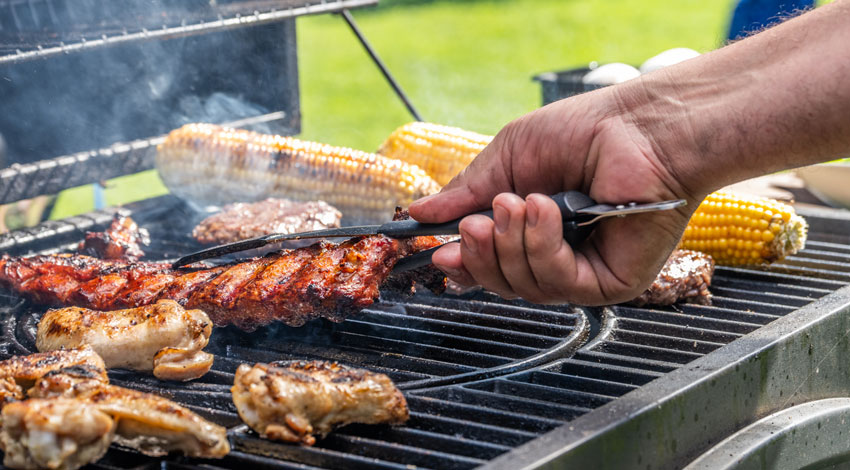
Well, you’d be half right. “Everyone is a pit-master to a certain extent,” says Road Scholar instructor and official pit-master, Seth Watari. “Granted, you have to spend hours and hours up to your elbows in grease and soot to be a true master, but anyone who cooks barbeque, who works in the pit, can claim that title.”
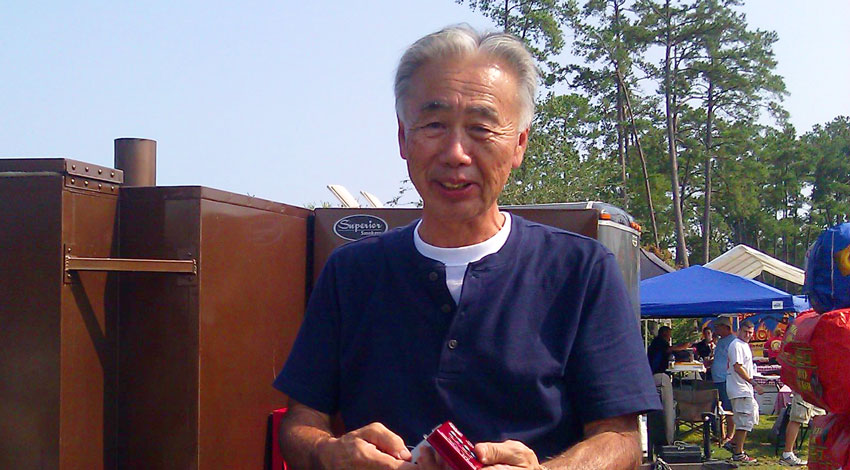
Seth Watari
“And ever since then, I've been searching for the perfect barbeque.”
Today’s pit-masters have learned their craft by putting in the time, he says — working with friends, conducting experiment after experiment, listening to people. And every pit-master has an origin story.
Seth’s begins in 1974 on a hot August night in South Carolina. “Work sent me to Akin, South Carolina. It had been a long day and around 9:30 that night, the two nice country gentlemen I was with got up, stretched and said, ‘well, let’s go get some barbeque.’”
Seth got into the back of the gentleman’s old Ford Maverick, and they headed out across the swamp. “You can imagine it, can’t you?” Seth asks. “Late, dark, no streetlights, and I’m just looking out the side windows and all I see is pitch black. And I’m worried, wondering if this is the last anyone was ever going to see of me,” he laughs.
They drove for about 45 minutes out into the swamp, until finally, he sees a streetlight. “We pulled up to an old wooden shack, I mean, literally what you would envision as a moonshine shack. No other cars. Just us. We went inside and there’s a 300-pound guy in a sweaty undershirt there, and he hands us a U.S. Army-issued steel tray.”
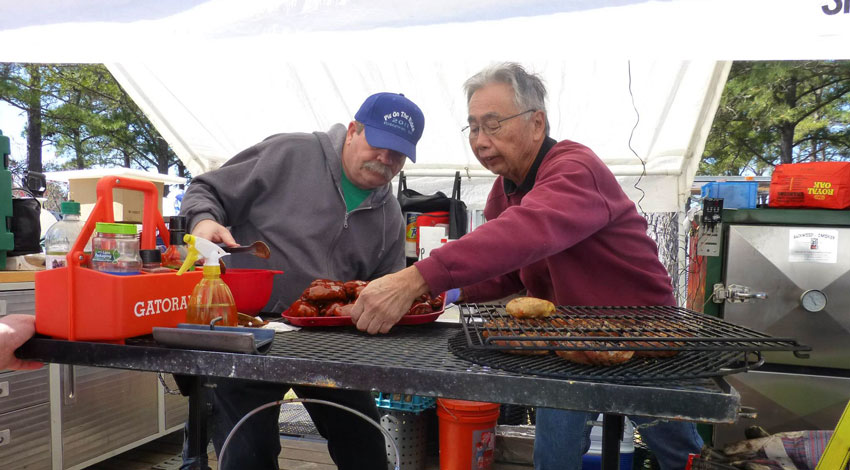
The first thing dropped on that tray was a big scoop of rice followed by an unidentified brownish orange substance, then a great big scoop of chopped barbeque. No vegetable, no salad. They sat at a picnic bench with a checkered tablecloth, a loaf of bread, a roll of paper towels and a pitcher of lemonade.
“And that was barbeque — that meat was flavorful. It was succulent. I didn’t know what that other stuff was, but I found out later it was called barbeque hash. It was absolutely all the tastes you wanted — sweet, sour, a little bitter, naturally salty and it just kind of clung to your palate. And ever since then, I’ve been searching for the perfect barbeque.”
We should probably pause here and define what exactly barbeque is. First, it’s a noun, not a verb, according to Seth. And it’s pork, officially — at least in the Low Country of South Carolina. “Good old-fashioned barbeque is defined as protein cooked low and slow over hardwood flame or charcoal.” Adding side dishes like collard greens, Hoppin’ John (a traditional Southern dish made with black-eyed peas, rice, and often onions, bacon or ham hock), field peas, rice and corn is what makes it Low Country barbeque.
“It’s like the original farm-to-table,” explains Seth. “And though South Carolina will feature all four major barbeque sauces: pepper vinegar, light tomato and heavy tomato, we really favor mustard-based sauces.”
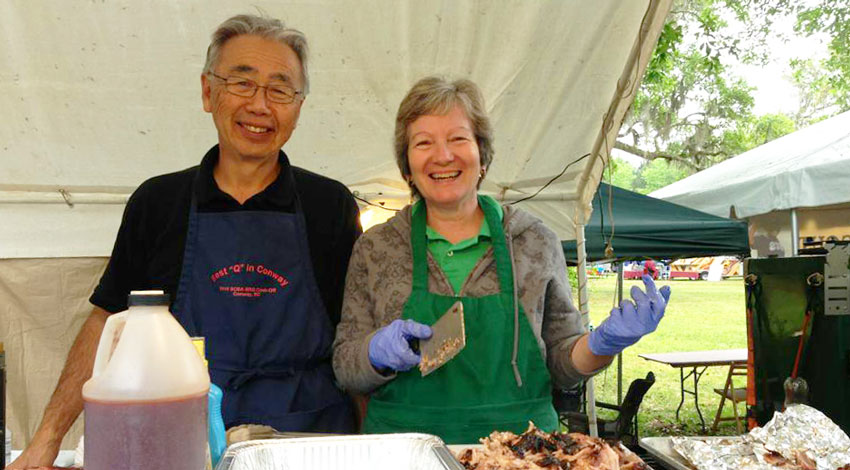
With material like this, it’s easy to see why Seth is a popular expert on our The Best Barbecue in the World: Secrets, Sauces and Smokers program. A Road Scholar instructor for over five years, he really loves our participants, their diversity of experience and what he learns from them.
“I had a participant from Maryland once, a doctor and an educator. I was talking about the introduction of rice and sesame and okra into barbeque, and she interrupted me, apologizing, and said that those date back to the slaves, and I said yes, that’s true.”
Then she told him something he didn’t know — that enslaved women would braid seeds into their hair because they didn’t know where they were going to end up and wanted to take some kind of crop with them that they knew how to grow.
“That’s how a lot of crops like okra, sesame seeds and peanuts got here. We had a nice long conversation, and she introduced me to a book, Black Rice, a historic account of the African American slaves, the rice culture and how they intermingled.” Remembering, Seth says, “It was an absolutely wonderful conversation, and the book was extremely informative and eye-opening. That’s the kind of energy and knowledge Road Scholars bring to a class, and it really helps me out. I love learning from them. I never want to stop learning.”
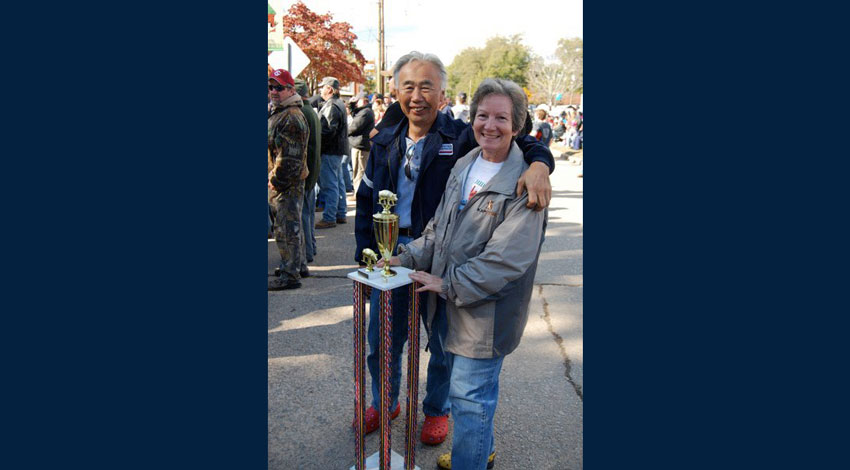
Ready for a learning journey of your own? Join Seth on our barbeque program, and if you’re looking to up your barbeque game this summer, Seth has some tips for you.
1. You can cook on any fuel source, but add flavor to it. With gas, add wood chunks. With charcoal, add wood pellets or use chunks of wood. You get the best flavor from open charcoal with wood on top. But don’t use wet wood — it smolders and makes sooty mess.
2. You want consistency, so Seth prefers charcoal briquettes. They burn clean and hot and tend to be a uniform size. Make a chimney of briquettes, so it’s the same every time. You want to reduce variables like heat source and quality of heat and smoke. To regulate heat, air is the largest variable, so literally starve the charcoal for air however you can.
3. Buy the best meat you can afford. “You can’t get great meals at a junk price.” Knives are also important — make sure they’re sharp and take care of them. Treat your barbeque equipment like you would your cast iron cookware.
4. You don’t need to go out and buy an expensive cooker. Buy used and cheap, and if you don’t like the hobby, no harm done. Local resale is the place to look.
5. A couple of good book recommendations: Big Book of BBQ: Recipes and Revelations from the Barbecue Belt. “Read it slowly,” Seth advises, "like you cook your barbeque.” Then read Cool Smoke by Tuffy Stone. It takes you to the next level, teaches technique and includes practices you can incorporate once you have the basics down.
“Barbeque is something I enjoy and I’m absolutely blessed that I can play with my passion the way I do. Road Scholars understand that kind of passion,” Seth says. Road Scholars also know good advice when they hear it. So does Seth. “In the words of a friend of mine, Mr. Myron Mixon, ‘barbeque is simple. Just don’t screw it up.’”
Ready to cook with Seth in person? Learn more here.
What are you cooking up to learn this summer? Join the conversation on Facebook.
